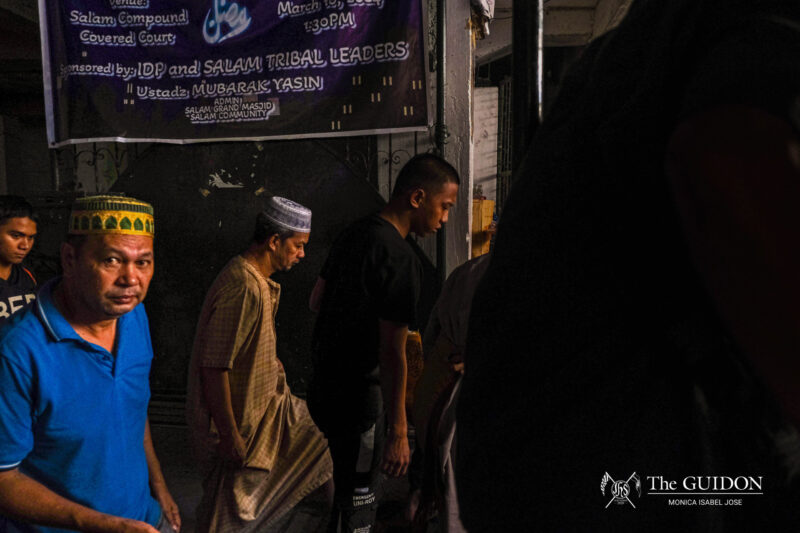Groups within campus such as the Christian Union for Socialist and Democratic Advancement and The Ateneo Assembly have condemned the violence in the Gaza. We must stand in solidarity with everyone calling for peace. At the same time, the discussion must also evolve towards considering the concrete steps that we can take to achieve it. Here I present an overview of the conflict and its political implications today. I hope this helps to unlock the inner activist in you.
To understand what the fighting is all about, we must begin by talking about Zionism. It is primarily a political movement that asserts the right of the Jews to establish a permanent homeland in Palestine. Zionists are a specific sect of Jews and their supporters espouse these ideals. “A home with no people, for a people without a home,” goes their popular mantra.
The problem is that the land that we know today as the state Israel had always been occupied territory. According to freelance journalist Alison Weir, the people living there before World War I consisted of Arabs; 85% of whom were Muslim, 10% Christian and 5% Jewish. They lived in an environment of relative peace.
Such is the backdrop for a conflict that has lasted for generations and has taken thousands of lives. After World War II, immigration into Israel by Jewish communities from Europe increased. Clashes between the native Palestinians and the newly settled Jews became inevitable.
After the diaspora, international mandates and initiatives of First World countries overwhelmingly favored and consolidated the claim of the Zionists. The United Nations (UN) Partition plan of 1947 gave 56% of the land to the Jewish minority and 43% to the Palestinian majority. Palestinians who comprised of two-thirds of the population now had less property. The Jews in Israel declared independence in 1947, and after a region-wide war, controlled 78% of the area (figures from the Middle East Research and Information Project). In 1967, an offensive attack against Egypt, Jordan and Syria gave Israel control over the Gaza and the West Bank, where a majority of Palestinians live today.
Fast forward to contemporary times. The Oslo Accords signed in 1993 by both Israel and Palestine formally recognizes Palestinians’ rights to self- determination. It is ironic that a majority of those living in Gaza today have never experienced freedom their whole lives. Barbed wire fences and military checkpoints surround Gaza. This allows Israel to control the inflow of goods and services as well as the outflow of people. It is also not uncommon to see walls of houses covered with holes from artillery fire. In the West Bank, the building of illegal Israeli settlement has not stopped completely, despite the official condemnation of United States officials like John Kerry. Peace negotiations have repeatedly been stalled due to feelings of animosity from both sides.
The recent conflict arose when Israel blamed Hamas, a Palestinian Islamist militant group, for the alleged kidnapping of three Israelis. This happened only months after the reconciliation of Hamas with its more moderate counterpart, Fatah. This unity was seen by Israel as a political threat that they needed to thwart. The result was an Israeli offensive dubbed “Operation Protective Edge.” Sources vary as to what the precise death tolls are. An Israeli news blog reports that the death toll in Gaza has reached 1,700, 400 of which are children. Noura Ekart from The Nation cites a UN estimate, which says that 74% of those killed are non-combatants.
How should conversations about these atrocities now proceed? Gustavo Gutierrez is a theologian who I look up to. In his writings about the poor in Latin America, he talks about the need to speak about injustice using both a prophetic and a mystical language. I believe that these are useful in trying to determine what our moral responsibilities are to those suffering in places far away.
A mystical language tells us that everyone has a claim to unmerited love and respect. The mainstream discourse on this conflict has created stereotypes about races and cultures in an attempt to simplify a complex issue. Many Americans still have the impression that all Palestinians are terrorists. Conversely, many assume that Zionism is a universal belief among all Jews. These caricatures only weaken active dialogue and negotiation that is sorely needed.
A prophetic language demands for us to renounce unjust structures and those that perpetuate them. This means condemning Israel for its attack on civilian targets, but also for its refusal to grant sovereignty to those living in Gaza. Conversely, we must also condemn rocket fire on the side of Hamas that, while less accurate and precise, have also killed Israeli civilians.
I hope leaders from both sides let go of their rockets and engage in dialogue instead. That may prove once and for all that love is all we need.
Basilio E. Claudio is the vice president for Public Relations of The Ateneo Assembly.




